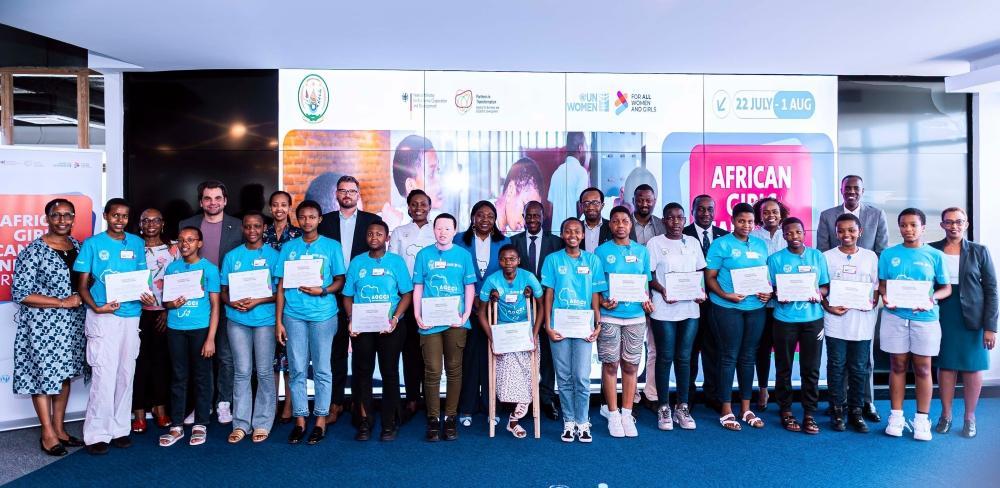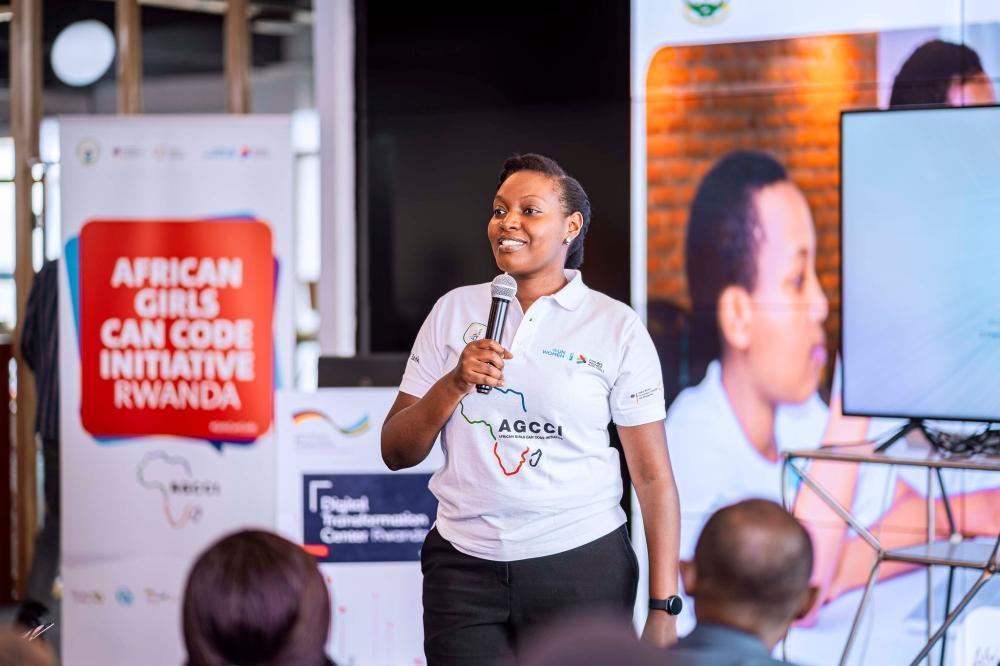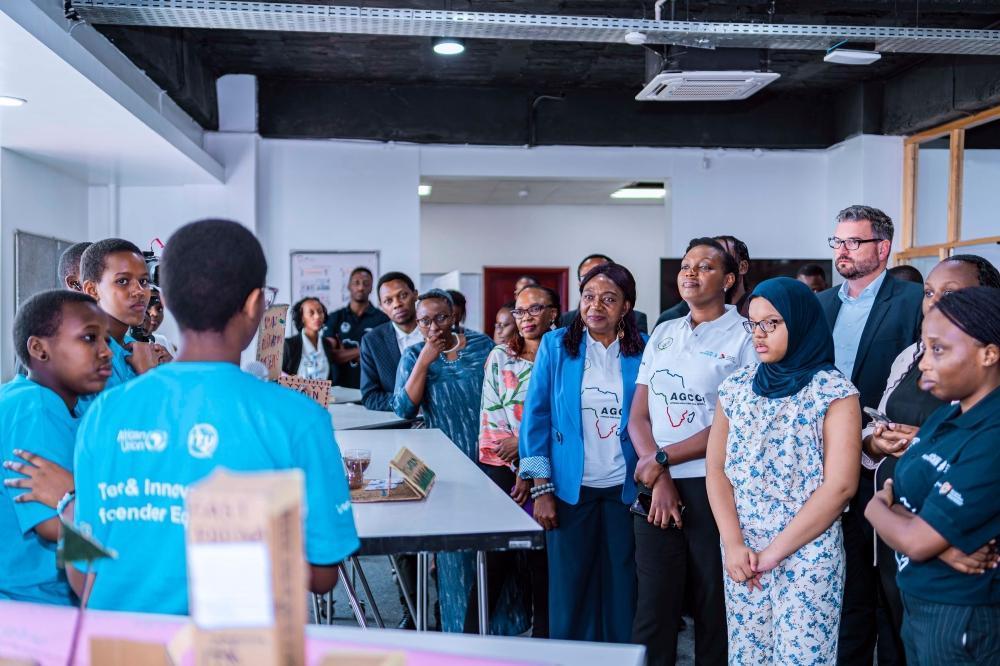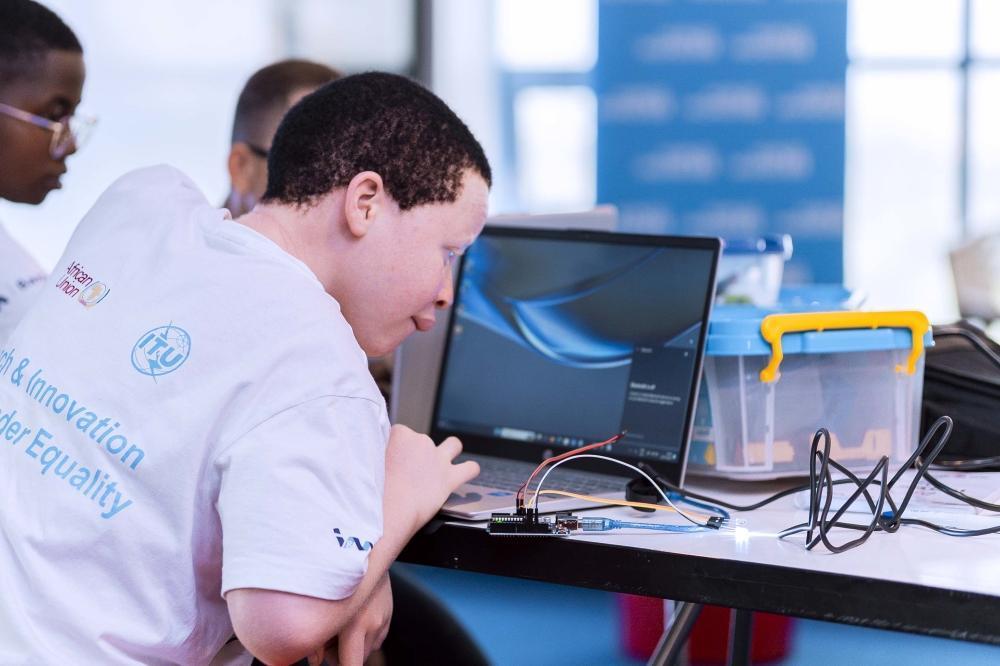Africa-Press – Rwanda. A total of 120 girls on Thursday, July 31, graduated from the third cohort of the African Girls Can Code Initiative, which seeks to empower young women with digital and technological skills.
The course sought to equip the 13 to 19-year-old participants with the knowledge and confidence to bridge the digital gender gap and become future innovators.
The course focused on robotics, exposing the participants to hands-on learning in electronics, programming with Scratch and C++ (a high-level general-purpose programming language) and mechanical engineering.
They worked with microcontrollers like Arduino, ultrasonic and fire detection sensors, creating functional prototypes by using locally available and affordable materials such as cardboard and recycled components.
Their projects included smart irrigation systems, self-controlled street lights, fire detectors, smart hand-washing machines, smart white canes for visually impaired persons, and a fully designed smart village model.
The second section of the programme introduced the participants to advanced digital tools, including Python programming, artificial intelligence, blockchain, Internet of Things (IoT), and virtual and augmented reality. They also explored UI/UX design, website development through Blogger, HTML, and CSS, as well as mobile app development using MIT App Inventor.
They also learned about the importance of women’s empowerment in ICT, the legal and policy frameworks supporting girls in tech, and were sensitised on cyber risks.
“The girls created full websites on their own and learned how to build apps, proving they’re not just users of technology, but creators,” said Jennifer Batamuriza, the head of the trainers.
“They were encouraged to design solutions for real-life challenges facing their communities. Since they now own devices and have access to the internet, they must understand how to protect themselves online.”
Shiroh Ineza Uwumugisha, a 13-year-old participant, shared how the programme transformed her understanding of technology and boosted her confidence.
“This programme opened a big path in my life, and I won’t stop until I reach something great,” said Ineza.
“I never imagined a girl like me could build robots or understand technologies like artificial intelligence and machine learning, but now I have the confidence. Many older people, even my parents, didn’t get this chance but I did, and I will use these skills to help others who missed the opportunity.”
Claudette Irere, Minister of State at the Ministry of Education, speaking at the event highlighted the crucial role of foundational skills in science and mathematics for the country to actively participate in the global AI revolution.
Claudette Irere, Minister of State at the Ministry of Education, highlighted the crucial role of foundational skills in science and mathematics for the country to actively participate in the global AI revolution.
“We believe that to truly join the AI revolution, one must first master the basics, especially physics and mathematics. This remains our focus even as we introduce emerging technologies,” Irere said.
She stressed that Rwanda should not be a passive consumer of technology but an active contributor who builds skills in coding and data management.
“AI is fundamentally about data, and we must develop experts who can tailor AI solutions to Rwanda’s unique context,” said the minister.
“Our partners always stay engaged, checking in on beneficiaries as they apply their skills. This program is a springboard, encouraging students to pursue further opportunities like the One Million Coders initiative.”
Jennet Kem, UN Women Representative in Rwanda, commended the initiative for narrowing the gender digital divide by equipping girls with essential tech skills.
“This programme is not just about coding, it’s about preparing future leaders, entrepreneurs, and change-makers who will transform their countries,” Kem said.
“These girls didn’t just learn to code; they built friendships, networks, and momentum.”
Students from the African Girls Can Code Initiative present their projects during the event.
The 120 girls in this third cohort learned to build functional prototypes using affordable and recycled local materials like cardboard.
For More News And Analysis About Rwanda Follow Africa-Press









